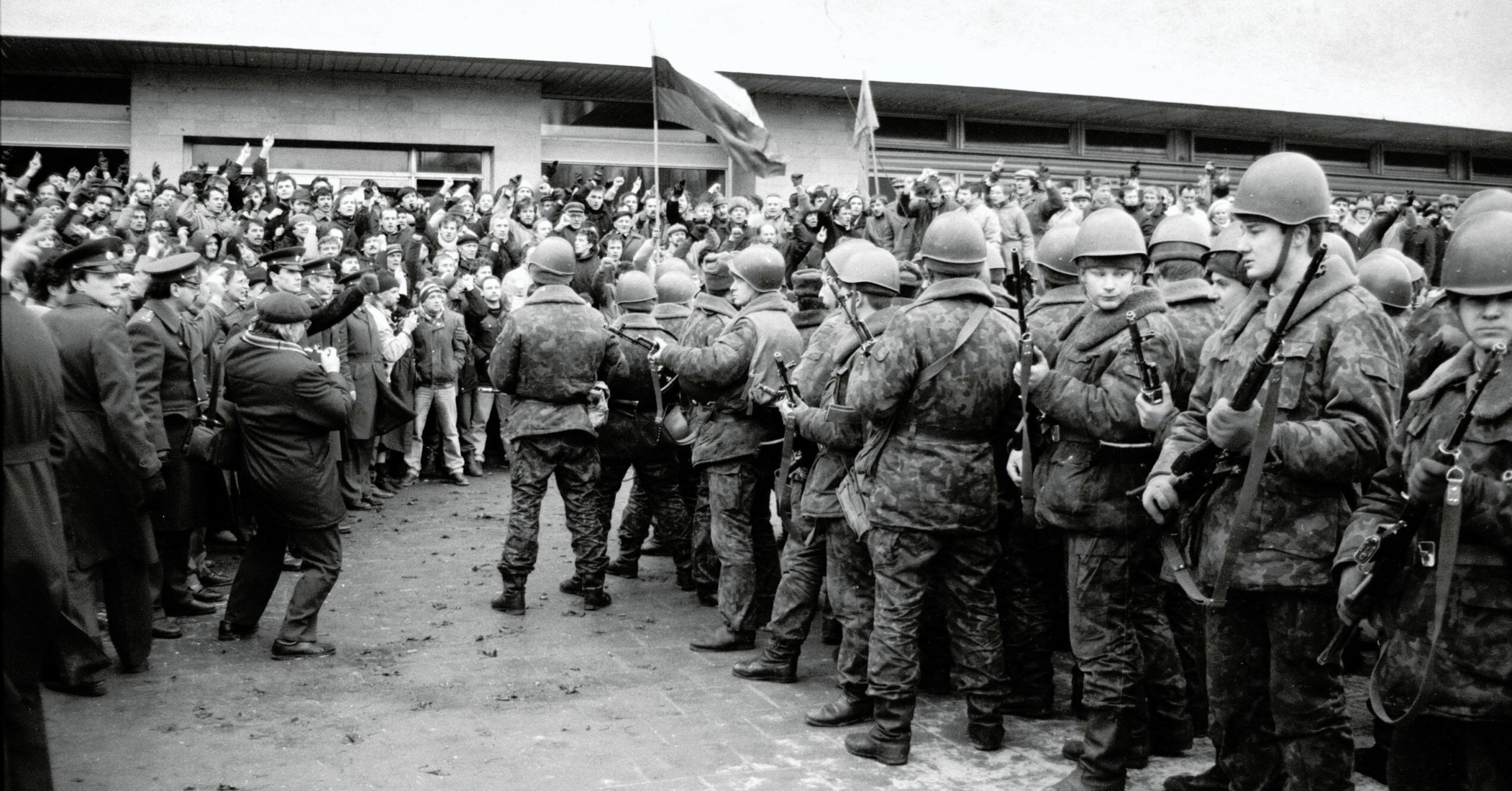The Specter of Captive Nations

As war rages in Ukraine, the specter of a new era of captive nations looms across Europe’s frontline. This fear is something I knew all too well growing up under Soviet control in occupied Lithuania. My homeland’s oppression and march for independence is also why I know that we must continue to stand with the people of Ukraine—before it is too late.
As a child, I longed for the freedom enjoyed by so many on the other side of the Iron Curtain. But that dream remained an impossibility until a spark was ignited in Lithuania. Between 1987 and 1991, freedom movements spread across the Baltics. Our weapons were song and patriotic solidarity against the Kremlin’s iron rule. The so-called “Singing Revolution” and “Rock March” along with the Lithuanian Sąjūdis, a political party known as the Reform Movement of Lithuania, paved the way for anti-communist rallies across the entire Soviet-occupied territory. Music, song, and dance became a subtle yet powerful way of resisting Moscow’s control and restoring national heritage, culture, and traditions.
At the age of 10, I memorized every Lithuanian freedom song. I remember listening to Radio Free Europe and singing along with Lithuanian artists and religious leaders who boldly defied the Kremlin warnings. The Lithuanian people refused to back down and on March 11, 1990, we became the first Soviet Republic to declare independence from the USSR. My tenth year was one of the most memorable of my life.
In response, Soviet tanks drove through our neighborhood to stop the tidal wave of freedom. My own parents, like every proud Lithuanian, refused to comply. They marched towards the parliament, TV tower, and main media headquarters to protect those strategic assets from a potential Soviet coup. People gathered in the thousands. No one was afraid. Everyone was ready to lay down their lives instead of returning to communist captivity. As Moscow continued to lose control, Lithuanian blood was spilled during the bloody events of January 13th at the Vilnius TV tower and the Medininkai massacre. But Moscow could not crush the voice of the people.
During the Singing Revolution I witnessed the strength of my people, and I learned the real price of freedom. I attended large rallies with my family and sat on my dad’s shoulders as he stood hand in hand with brave Lithuanians. I learned about the meaning of democracy. I learned to not be afraid and to replace the red star pin of Lenin’s image with a Lithuanian flag pin on my school uniform. I learned to love and appreciate my language, my culture, my history, and my national heritage. And I learned that I couldn’t possibly take for granted my wonderful country that had so little, yet so much to offer, despite communism.
This Captive Nations Week, we must not allow Russia to capture Ukraine as part of its communist legacy of oppression. Just like Moscow held my homeland and so many others captive under the Soviet Union, so too does it endeavor with its brutal war in Ukraine today. As the NATO Summit and the Captive Nations Summit this past week reaffirmed, the path ahead is difficult but simple: The Ukranian people have already made their decision. Now they need our support.
Milda Mataciunaite-Boyce is Director of Fellowships and Coalitions at the Victims of Communism Memorial Foundation.
Image: Unarmed civilians defend the Lithuanian Press House from Soviet army paratroopers in January of 1991. Photo Paulius Lileikis via the Lithuanian Central State Archives under CC BY 4.0.

